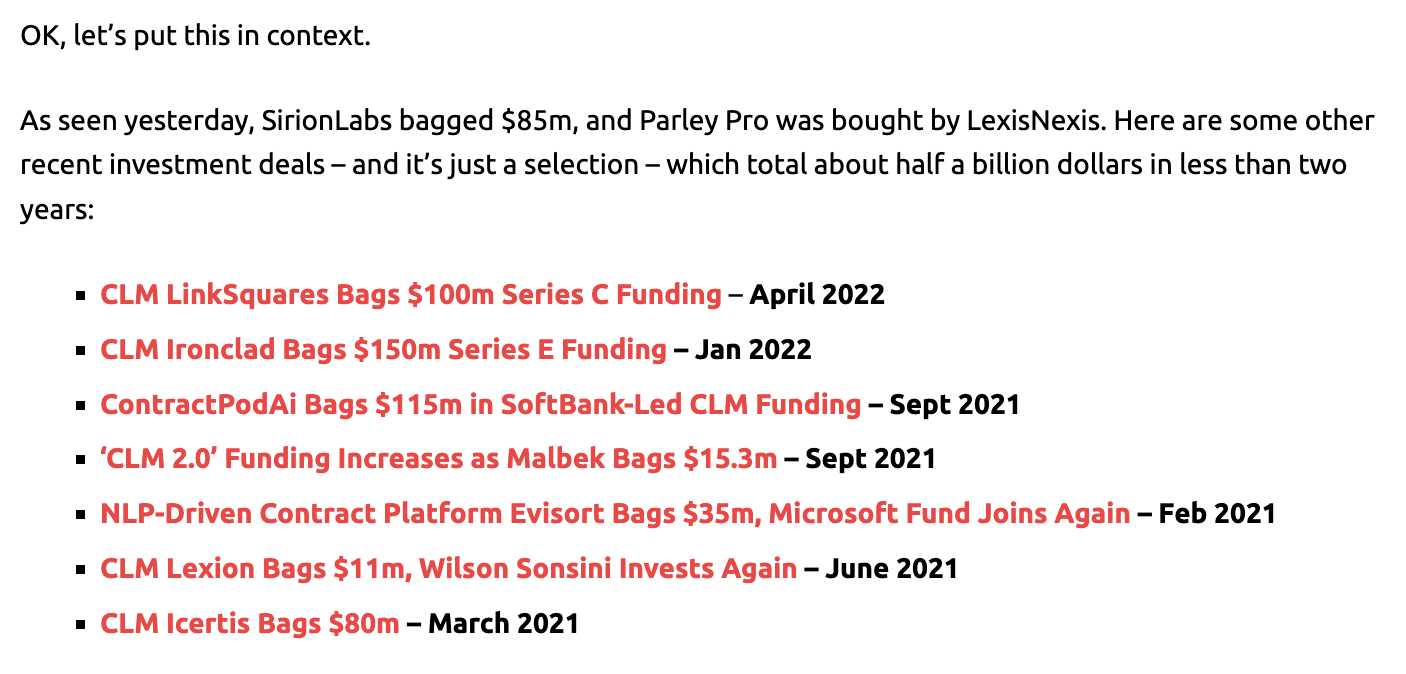The Biggest Thing Happening In Legal Tech
Why it's such an extraordinary time in the contracts tech space and why most lawyers aren't able to see the opportunity right in front of them
There’s no question about it: The contracts tech space is hot. While the rest of the tech startup world is reeling from a terrible IPO market, lower valuations, layoffs, etc. the the contracts tech market saw hundreds of millions in announced fundraises in the past few weeks. My friend Richard Tromans summarized this trend on Artificial Lawyer:
There are lots of people smarter than me who can probably explain why. For me, personally, it represents validation that I made the right decision in 2019 to pivot out of e-discovery tech to contracts tech. Today I’ll explain why I believe contracts tech (ie. contract lifecycle management, or CLM) is the biggest opportunity in legal tech right now despite the fact that many lawyers and commentators believe it’s overhyped.



